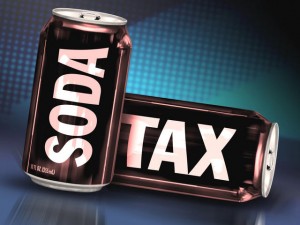Sales Tax
New “Soda Tax” in Berkeley Isn’t So Sweet
Usually, sin taxes are relegated to perceived vices such as cigarettes and alcohol. But a progressive city in California has approved another sort of sin tax for consumers: an excise tax on artificially sweetened soft drinks. It’s believed that the “soda
Nov. 06, 2014

Usually, sin taxes are relegated to perceived vices such as cigarettes and alcohol. But a progressive city in California has approved another sort of sin tax for consumers: an excise tax on artificially sweetened soft drinks. It’s believed that the “soda tax” passed in Berkeley, home to the University of California, is the first of its kind in the nation.
Under the measure approved by voters on November 4, a one-cent-an-ounce tax will be imposed on soft drinks, including soda (called “pop” in some parts of the country), energy drinks and sweetened ice teas. According to many health experts, consumption of these drinks is a leading contributor to a nation-wide obesity problem, as well as diabetes and other illnesses.
Thus, the tab for a 64-ounce bottle of Coke or Pepsi will cost an extra 64 cents, before any other price increases by retailers. It’s estimated that costs will rise as much as ten percent. The new tax takes effect on January 1, 2015.
The controversial soda tax was voted in by more than 75% of the Berkeley residents who turned out at the polls. In comparison, a similar measure in nearby San Francisco was defeated, even though the majority voted in favor of it. The San Francisco tax, which would have been two cents per ounce, was approved by 54.5% of the voters, but city law required two-thirds for passage.
Former New York City mayor Michael Bloomberg drew attention to these health issues in 2012 when he proposed a ban on sweetened drinks larger than 16 ounces. The proposal met with derision and scorn – not to mention a skit on Saturday Night Live and other comedic skewering – before a New York judge struck it down as being “arbitrary and capricious.” But Bloomberg made his point and was somewhat syndicated after providing financial support to the west coast cause.
Is the soda tax in Berkeley an anomaly or the start of a trend that will chip away at soft drink consumption? Roger Salazar, a representative of the $10 million opposition campaign in California funded by soft drink manufacturers believes the measure will have little, if any, impact on a national level. “Berkeley is very eclectic. It doesn’t look like Anytown USA,” Salazar said to the Associated Press. We’ll see if this issue bubbles over in other places.
